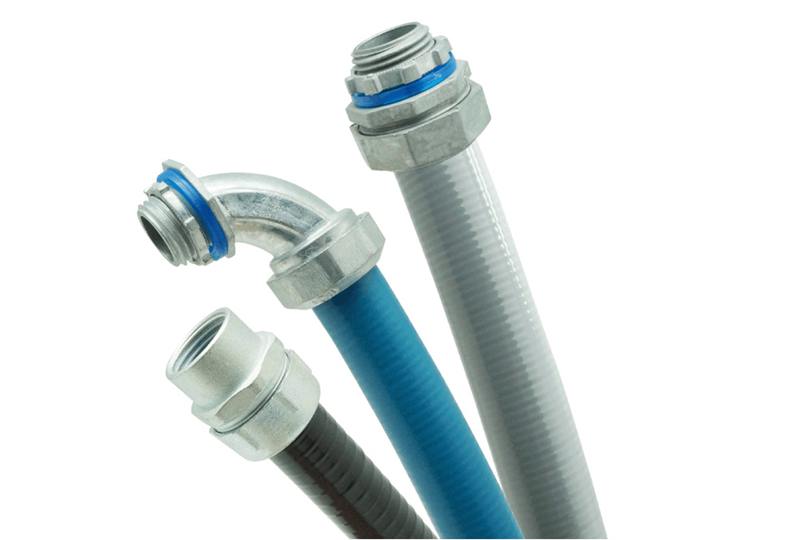Liquid Tight Flexible Metal Conduit: Versatile, Durable, and Secure
In the world of electrical and industrial installations, safety and reliability are paramount. Ensuring that electrical systems are well-protected from a variety of environmental factors is crucial for both the safety of the installation and the longevity of the equipment. This is where Liquid Tight Flexible Metal Conduit comes into play. LFMC is a versatile and robust solution that provides excellent protection for electrical wiring and cables, making it an indispensable component in various applications.
What is Liquid Tight Flexible Metal Conduit?
Liquid Tight Flexible Metal Conduit as the name suggests, is a conduit designed to provide a liquid-tight seal around electrical wires and cables. It is made of flexible metal, typically galvanized steel or stainless steel, and features a PVC or thermoplastic jacket that resists oil, water, and various chemicals. This combination of materials creates a conduit that offers exceptional protection against moisture, dust, corrosive substances, and physical damage.
Applications
LFMC is commonly used in a wide range of industries and environments due to its adaptability and durability. Some key applications include:
Industrial Settings: In industrial facilities, where harsh conditions are often encountered, LFMC is widely used to protect electrical wiring against exposure to chemicals, oil, and extreme temperatures. It's an excellent choice for industries such as petrochemical, manufacturing, and food processing.
Outdoor Installations: Outdoor environments can be especially challenging for electrical systems. LFMC provides reliable protection against moisture and UV radiation, making it suitable for outdoor lighting, security systems, and agricultural applications.
Hazardous Locations: In environments where the risk of explosions or fires is a concern, LFMC is used to ensure that electrical systems remain safe. This includes locations with flammable gases or dust, such as oil refineries, chemical plants, and grain handling facilities.
Residential and Commercial Wiring: LFMC is also utilized in residential and commercial installations, particularly in locations where wiring may be exposed to moisture or physical damage. This includes swimming pools, garages, and outdoor lighting fixtures.
Advantages of LFMC
LFMC offers several advantages that make it a preferred choice for protecting electrical systems:
Flexible Design: The flexibility of LFMC allows for easy installation, even in tight and complex spaces. This flexibility also reduces the need for elbows and fittings, saving both time and money during installation.
Durability: The metal core of LFMC provides exceptional durability and mechanical strength, making it resistant to impact and crushing. The PVC or thermoplastic jacket adds an extra layer of protection against external elements.
Liquid Tight Seal: LFMC's design ensures a secure, liquid-tight seal around wires and cables, preventing moisture and other contaminants from entering the conduit. This is essential for maintaining the integrity of electrical systems and preventing corrosion.
Chemical Resistance: LFMC is resistant to a variety of chemicals and oils, making it suitable for use in environments where exposure to such substances is a concern.
Temperature Tolerance: LFMC can withstand a wide range of temperatures, from extreme cold to high heat, ensuring that it performs reliably in diverse environments.
UV Protection: The PVC or thermoplastic jacket provides UV resistance, making LFMC suitable for outdoor applications without the risk of degradation due to exposure to sunlight.
Installation and Maintenance
Proper installation and maintenance are essential to maximize the benefits of LFMC. Installation should be carried out by qualified professionals who adhere to local electrical codes and standards. Regular inspections and maintenance are necessary to ensure the conduit's integrity and the safety of the electrical system. Any signs of damage or wear should be addressed promptly.
In conclusion, Liquid Tight Flexible Conduit is a versatile and durable solution for protecting electrical wiring and cables in various applications. Its ability to create a liquid-tight seal, resist chemicals and physical damage, and withstand a wide range of environmental conditions makes it a top choice for ensuring the safety and reliability of electrical systems. Whether in industrial settings, outdoor installations, hazardous locations, or residential and commercial applications, LFMC plays a crucial role in safeguarding electrical systems and the people who rely on them.




